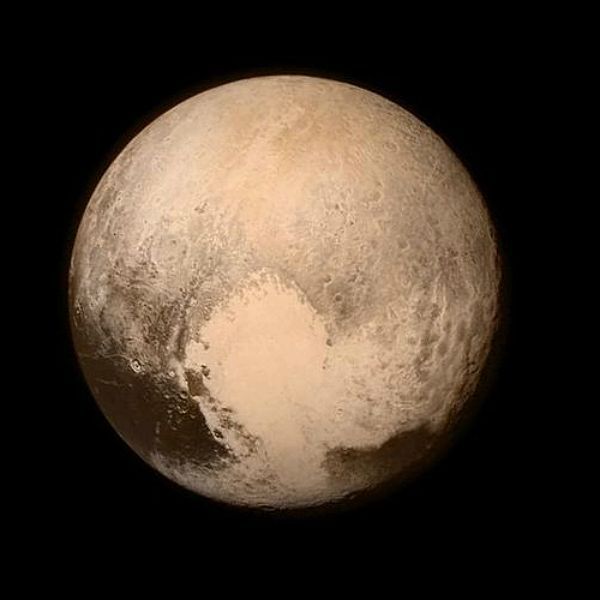Pluto New Horizons mission: what happens next?The Guardian
By Hannah Devlin | July 15, 2015, 10:12AM EDT When did the mission begin?
When did the mission begin?New Horizons blasted off in January 19 2006, and was the fastest launch recorded, reaching speeds of over 36,000 miles per hour. The spacecraft passed the Moon after just nine hours, around eight times quicker than the Apollo programme, and reached Jupiter the following year.
What have we learnt in the past 24 hours?The new up-close images show that Pluto is slightly larger than we thought -2,370 kilometres (1,473 miles) in diameter - making it undisputedly the largest dwarf planet in the solar system. For the past decade astronomers had been undecided about whether Pluto or Eris, another dwarf planet beyond Neptune, was bigger. Astronomers already have good estimates of Pluto’s mass, and so the larger volume than expected means that Pluto must be less dense than we thought and probably contains more ice beneath the surface. Sensors on New Horizons also detected a thin nitrogen atmosphere extending far out into space, which scientists believe may shed snow, with nitrogen flakes tumbling down to the surface before evaporating again at the surface.
On Wednesday at around 3pm ET/ 8pm BST we are expecting a new set of images to be published from the moment of closest contact.
[...]
Where is New Horizons heading next?The mission is now speeding onwards into the Kuiper Belt where it will examine one or two of the ancient, icy miniature worlds in the vast region. The so-called Kuiper Belt Objects (KBOs) that it might fly-by include Quoar, Eris (close in size to Pluto), Makemake, Haumea or Sedna. In coming months, scientists will decide the spacecraft’s next target and send signals from Earth to New Horizons to thrust its rockets to tweak its trajectory.
When will the mission end?The fuel is designed to last until the late 2020s or even beyond. When it runs out of power, astronomers will lose contact with the probe and it will continue to drift out past the Kuiper belt and eventually leave the solar system.
...more at linkhttp://www.theguardian.com/science/2015/jul/15/pluto-new-horizons-mission-common-questions



